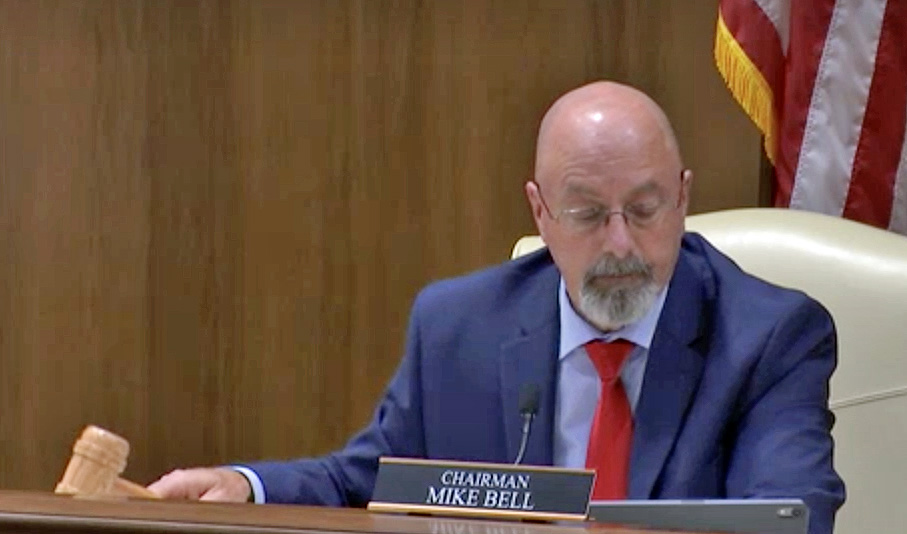The Republican campaign against the kind of expanded voting rights that produced Democratic victories in November has moved into overdrive in the Tennessee legislature, where two far-reaching bills are on the verge of passage.
One bill is SB915/HB1072 (Kelsey, Curcio), which would effectively immunize state government against legal actions by local jurisdictions — or at least establish a barrier prohibiting immediate injunctive relief for plaintiffs.
Another bill, SB868/HB1130 (Bell, Farmer) would create a statewide three-member super-Chancery Court charged with hearing any legal action questioning state actions, including statutes, executive orders, or administrative actions.
Both bills are avowedly aimed at results, both in court and at the polls, that are likely to have favored Democratic candidates and causes. Specifically cited as justification for the two measures is the decision by Nashville Chancellor Ellen Hobbs Lyle, in June 2020, calling for extension of mail-in absentee voting in view of the raging coronavirus pandemic.
Lyle imposed an injunction on the state’s enforcement of more restrictive absentee-voting requirements, after which the Secretary of State’s office first delayed its response, then fought the injunction all the way to the state Supreme Court, which, in its ruling, offered some mitigations of the injunction’s effect. But considerable expansion of mail-in voting would still be the end product for the election of 2020.
Almost certainly, this is what Rep. Michael Curcio (R-Dickson), House sponsor of HB 1072, was referring to when, in committee deliberations, he cited “recent political history” as a reason for passing his bill, which would, in the case of similar future challenges to state authority, mandate an automatic stay of any possible injunctive relief, pending ultimate resolution of the dispute on appeal.
In the case of the 2020 mail-in voting issue, such a law would, because of time restraints imposed by the election calendar, have prevented the possibility of expanding voters’ accessibility to absentee voting before all possible appeals by the state could be heard.
Though state Rep. John Ray Clemmons (D-Nashville) pointed out as much during debate in the House Civil Justice Committee, Republican votes carried the bill through both there and in the Senate Judiciary Committee, and the bill is scheduled for final votes on the floors of both the House and the Senate on Monday, April 26.
The situation is less imminent with SB868/HB1072, which still must undergo some committee scrutiny. This bill would establish a three-member state Chancery Court, in effect, to hear all legal challenges to state authority. One member each would represent the state’s western middle, and eastern Grand Districts, but all three judges would be elected statewide.
If the bill passes, Governor Bill Lee, a Republican, would appoint the three initial judges, who would serve until the elections of 2022, which would establish eight-year terms.
As of now, such litigation is heard in Nashville Chancery Court because of that court’s proximity to state government. The proposed three-member state Chancery Court could hear cases in Knoxville, Nashville, or Jackson.
There is little mystery as to the GOP sponsors’ motives for the legislation. As Senate sponsor Mike Bell (R-Riceville) declared in committee deliberations, “Let me just tackle head on why we’re here with this issue. Why should judges who are elected by the most liberal district in the state….Why should they be the ones judging cases?” Bell, who had specifically cited last year’s mail-in ballot issue decided by Nashville Chancellor Lyle, continued that the voters of Davidson County ”in election after election choose members of one party.” There are, he said, “only two [elected] Republicans in Davidson County.”
Bell rounded to his point. “Don’t tell me politics don’t affect judicial issues. They do. I want judges who reflect the political makeup of the state…. I completely reject the idea that judges don’t reflect a political philosophy. I am no way rejecting the idea of partisanship in judicial matters. Partisanship should reflect the voters of the state.”
Senator Katrina Robinson (D-Memphis) would object to this logic in the senate Judiciary Committee, as Representative Antonio Parkinson (D-Memphis), among others, would in House Civil Justice Committee. But there you have it, presented in all candor and nakedness: The bill is designed to make sure that legal challenges to state authority are heard by a Republican-dominated tribunal — which is what the three-member state Chancery Court would almost inevitably be.
In tandem with the previously mentioned bill, SB915/HB1072, the bill would, if successful, present another barricade to the likelihood of success for progressive or local challenges to state authority. Ironically, given her status as a catalyst for the two measures, Chancellor Lyle of Nashville was originally appointed by Republican Governor Don Sundquist.
As indicated, SB915/HB1072, which guarantees automatic stays of litigation against the state, is due for floor action in both chambers on Monday night. The fate of SB868/HB1130, the Chancery Court legislation, still awaits action in the Finance committees of both chambers.
